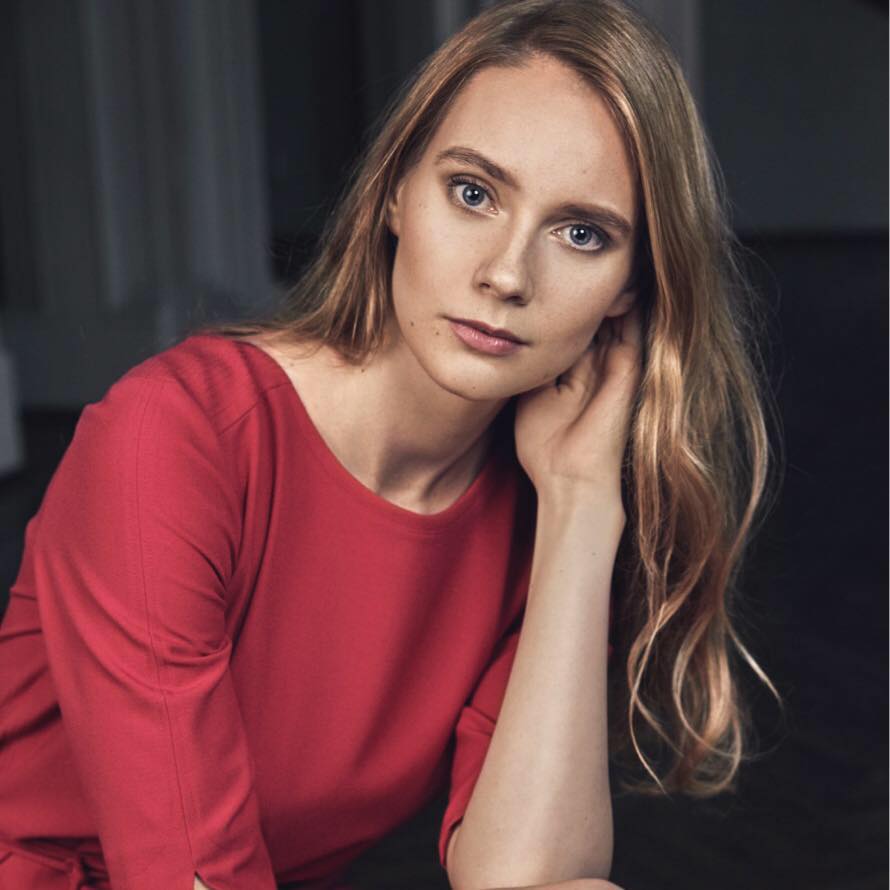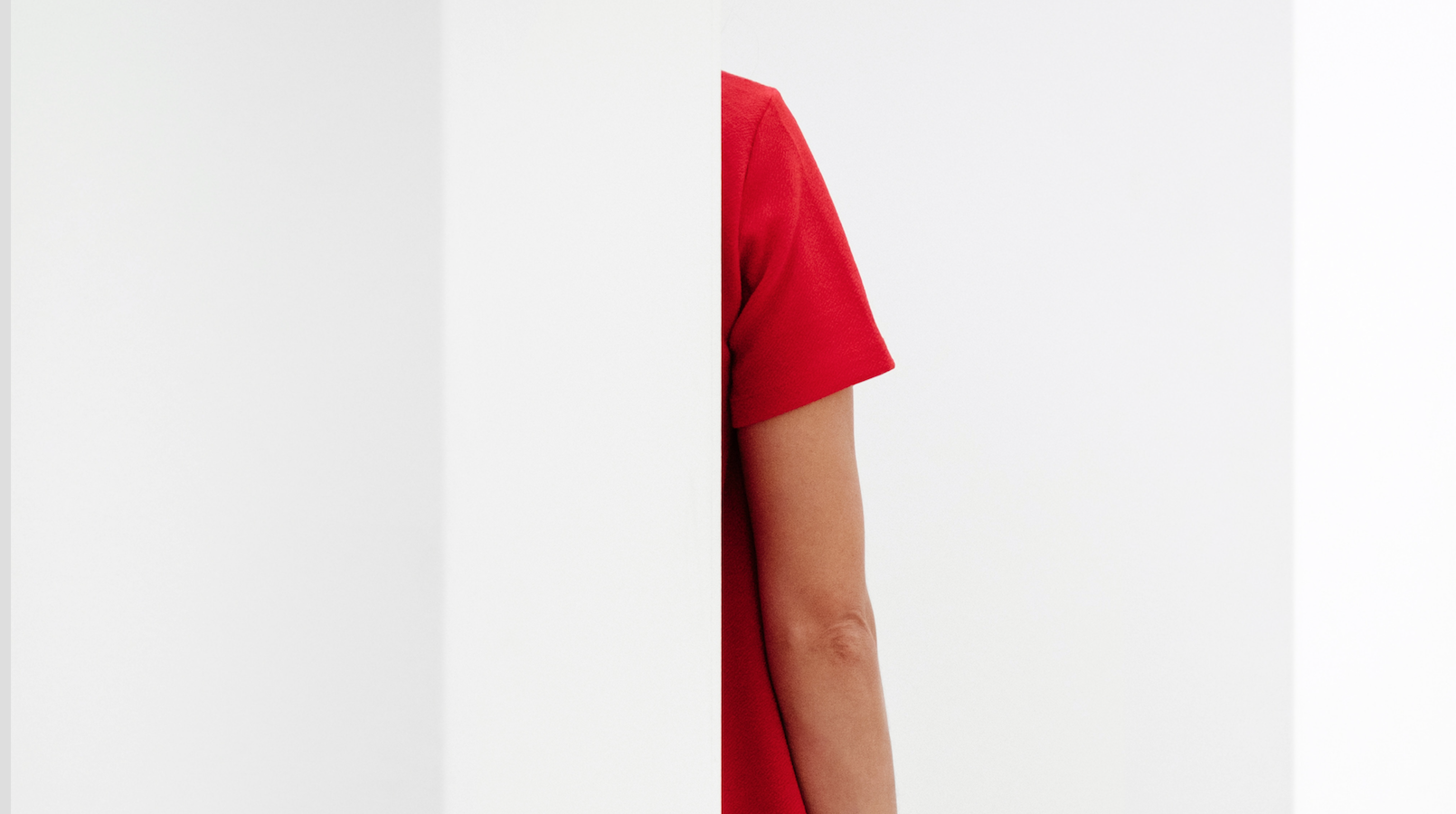Your clothing affects the perception that others have of you, but most importantly, they affect you—the wearer—too. What you wear can affect your thoughts, feelings and even behaviour.1 The question is how can we, as entrepreneurs, understand that and change how we dress for the better, to potentially gain more success, and help ourselves feel beautiful, worthy, and powerful with our own feminine strength. I recently did some research on this topic and visited the workplaces of female leaders to see how they dressed, and to ask them if it affected how they behaved.
Did you choose your outfit in order to fit in?
I often see women who come into the office with a dark navy blue suit, designed in masculine fashion with a straight silhouette, vertical lines, strong angular lines, large-scale details, and heavy textures. This style reminds me of a woman from the business dress code tutorial, perfectly coiffed and ready to climb the corporate ladder. I believe she is a good employee that perform her duties well. Yet I don’t see her individuality — her persona is chosen by the dress code.
I used to be like her. When I wear my dark suit, I feel more reserved and professional, but also that I’ve put on the mask of seriousness. I feel like I’m able to fit in, but I’m not the one who leads. For me, it is much harder to build up a lot of energy while wearing a black suit. For example, I know I should not wear a somber outfit when trying to approach my client or sell a product. Even at home after putting on a dark suit, I feel like I’ve already set myself up: I’m staying behind the mask, reserved, protecting myself, only focusing on facts. This mood doesn’t help me to establish good relationships with my clients.
Are you brave enough to be noticeable?
When I wear brightly-colored clothes, however, I am noticeable, and this doubles the outcome of my meetings. When I am visible, it makes me feel more powerful and confident. This is apparent on my face and body language, and others notice it too.
Yet, do some of us have unconscious aversions to wearing bright colors? If you walk into a room wearing red, for example, it’s nearly impossible to stay unnoticed. Everybody pays attention, and there is a high probability that someone will come up to you with a question or ask for an opinion since you’re projecting yourself in a strong and confident way. That takes courage. It’s much easier to arrive in black and stay in the corner. I personally don’t want to wait for an opportunity that may not come, so I try to create it by choosing the right outfit. I prefer red.
Don’t just take it from me though. Psychologists S.C. Robert, R. C. Owen and J. Havlicek say that color affects us on an unconscious level and that the effect is seen in our facial expressions, posture and head-tilt.1 By wearing a powerful color, others see you as more powerful.
Would you rather hide?
When I was younger, I was a model and very thin. Unfortunately, the fashion industry dictated to me that I was only “beautiful” when my measurements were an unrealistic 90-60-90cm (35-23-35”). My standards of beauty were very distorted at that time. I wasn’t able to stay so thin for long, and as I gained more weight, I saw how the clothing I wore also changed. When I was bigger, and being shamed for my size, I avoided clothing that I liked (such as brightly-colored or fitted outfits) chose oversized, dark clothes that would hide me. I wore black most days.
Back then, I wasn’t choosing to dress in things that would make me feel beautiful, I was entirely dressing based on what would make me look slimmer. This desire to hide was not based on what I weighed – it was affected by how I felt about myself after years of working in an industry that prizes extreme thinness. Sadly, no matter how my body actually looked, I could not accept myself and feel beautiful the way I was. I was thinking that only when I reached the industry’s high standard of beauty would I feel good about myself. However, it doesn’t happen that way. Feeling good about yourself and thinking you’re beautiful must come from within. I found that dressing in feel-good clothes (colors you like, tailored outfits that fit you well no matter your size) gave me a perk in my step and helped me start on the road to accepting my own body and appearance.
Do you want to slow down or elevate your business?
When I ask colleagues why they wear sneakers to work, I hear “because it’s comfortable.” This answer often made me feel confused. Honestly, it’s a very good argument because it’s very hard to oppose that. But, what does comfort mean? When I wear sneakers, I’m running everywhere to get errands done. I always have a long to-do list, and running shoes literally facilitate me getting more done. At the end of the day, I am tired, not because of the sneakers, but because they enable me to do more.
When I wear high heels, I cannot do that much because I won’t be able to get everywhere. I look on my to-do list and choose just the top priorities. When I wear them, I walk very differently, more slowly. I notice how beautiful the architecture of the buildings is around me. They slow me down, yet I see more of my surroundings. Sometimes it is enough just to change the shoes to start joying and feel more relaxed at the end of the day.
It’s time to change our entrepreneurial mindsets and lead with a strength that comes from kindness, care, empathy, and smile. Become successful by being yourself and bringing joy into your busy life. Think of yourself do you want to fit in and be like the rest, pleasing others. You are unique and valuable with your individuality. Find shoes that encourage you to slow down a bit. Then try and see what happens when you wear bright colors. What are the outcomes? How do you feel? Does it boost your confidence? Have you noticed that when you change your clothing, your attitude towards yourself can improve? Have more opportunities come your way due to this?
1 Roberts C. S., Owen C. R. & Havlicek J. (2010). Distinguishing Between Perceiver and Wearer Effects in Clothing Colour- Associated Attributions. Evolutionary Psychology www.epjournal.net 8(3): 350-364


